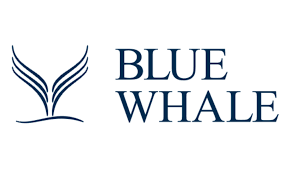Stephen Yiu has managed this fund since launch in September 2017
Yiu leads an investment team of six in hunting for high-quality companies with plenty of growth potential
The fund has performed better than its IA Global peer group sector average since launch
This fund does not feature on our Wealth Shortlist of funds chosen by our analysts for their long-term performance potential
How it fits in a portfolio
WS Blue Whale Growth aims to grow investors’ money over a five-year period by investing in companies from around the world. As the fund’s name suggests, companies focused on growth are the primary focus, many of which reside in developed markets like the US and Europe. Whilst the managers have the flexibility to invest in higher-risk emerging markets, they tend not to invest much there, which means it could work well alongside other investments dedicated to these regions. Alternatively, it may complement portfolios focused on more value orientated companies with recovery potential.
Blue Whale was co-founded by Peter Hargreaves, a significant shareholder and founder of Hargreaves Lansdown Plc, which prohibits the fund from inclusion in the Wealth Shortlist.
Manager
Stephen Yiu has been lead manager of the fund since launch in September 2017. His career began in the Investment team at Hargreaves Lansdown. Since his departure in 2007, Yiu has added the likes of Artemis, New Star (now Janus Henderson) and Nevsky Capital to his CV. Yiu is supported by co-managers Dan Allcock and Matthew Stonebridge and three other dedicated analysts.
Alongside his fund management responsibilities, Yiu is chief investment officer of Blue Whale Capital, the company he co-founded in 2016 with Peter Hargreaves. We consider this role to be complementary to his fund management responsibilities and not a distraction from stock selection. If the company launches new investment products in the future, we believe it would need additional resources to do so effectively.
Process
Yiu and his team conduct detailed analysis to uncover companies they believe are of the highest quality. Each analyst can look at any sector and the team spend a large amount of time combing through company data and keeping a close eye on the competition. They look for companies with strong balance sheets, significant growth potential and robust business models that are resilient to the threat of disruption and fluctuations in the wider economy. They also favour experienced management teams whose interests are well-aligned with their companies’ prospects.
Once a potential candidate for investment has been identified, the team constructs a unique financial model to assess its valuation. Their forecasts are then sense checked against what other analysts in the market are predicting. This usually provides a good indication of how expensive or cheap a company’s share price is compared with its potential.
These strict criteria filter 1,600 companies down to an investable universe of around 100. Currently they invest in 30. This gives each holding the potential to make a big difference to the fund’s performance, but it’s a higher-risk approach. 64.1% of the fund currently invests in North America with the remainder largely invested in Europe and 4.2% invested in Asia. Companies in the technology sector account for 32.9% of the fund but this includes a diverse array of businesses, including payments companies Visa and Mastercard and largest position Nvidia.
Yiu made a number of changes to the fund’s holdings over the last year. After selling Meta (Facebook) back in early 2022 Yiu reinvested in it in 2023. The team believes the company has the potential to do well with the advancements in artificial intelligence (AI), given it holds a large amount of consumer data. Yiu also added American semiconductor company Applied Materials to the fund. It was a direct replacement for Dutch company ASML which was sold as the valuation and share price potential no longer looked as attractive. Similarly, US healthcare company Danaher was added and replaced software business Intuit.
Culture
Blue Whale Capital is a small boutique asset manager, currently running just the one fund. Its investment team has a fairly flat structure which means each member can propose ideas and voice their opinions in an open and collegiate environment.
As well as the six investment professionals, the company benefits from two senior advisers, Mark Skinner and Jeremy Leadson, who between them have around 60 years’ experience in financial services. Co-founder Peter Hargreaves is chairman. Additionally, there is a chief compliance and risk officer. This is a small team, but it should expand as the firm grows.
ESG Integration
Blue Whale Capital is the most recent signatory to the Principles for Responsible Investment under HL’s fund research coverage, having signed up in February 2023. The manager sees Environmental, Social and Governance (ESG) issues as a risk factor, and he considers how ESG is likely to impact the performance of the companies he invests in. His high-quality investment approach means the fund won’t invest in companies generally perceived to be doing the most harm to the environment, such as oil & gas and coal producers. Similarly, he avoids investing in industries with poor labour relations, excluding many rideshare or ‘gig economy’ companies.
When it comes to voting, the manager will generally vote with management unless he believes doing so is against investors’ interests. He also engages with the companies he invests in, but the engagement process is not as systematic as some other managers. The firm does not produce any engagement or voting report (aside from a headline voting summary), making it much less transparent than most other mainstream fund houses.
Cost
The WS Blue Whale Growth fund has an ongoing charge of 0.83% a year. The HL platform fee of up to 0.45% per annum also applies.
Performance
Since the fund launched in September 2017, Yiu has performed well and delivered stronger returns to investors than the average fund in the IA Global sector. Over this period (to the end of January 2024) Blue Whale Growth has grown 116.55%*, ahead of the 64.13% return generated by the IA Global sector. Past performance is not a guide to future returns.
The manager’s growth-focused investment style has been in favour for most of the fund’s existence. Though it had been a headwind in 2022 where value investing fared better than growth investing. As central banks, including the influential US Federal Reserve, started to raise interest rates to combat high inflation, stocks priced largely on expected higher cashflows far into the future fell out of favour, sending their valuations and share prices down.
Over the last 12 months the fund’s delivered a return of 31.79%, outperforming the IA Global sector return of 7.77%.
Our analysis suggests that Yiu has added value with his stock selection, most notably in the technology sector. Investors have favoured technology companies again since interest rate expectations peaked. They’ve also rushed to companies who they believe will be the biggest beneficiaries of advancements in AI. It’s expected that AI will make businesses more efficient and provide better outcomes for customers.
This means Yiu’s investment in US semiconductor company Nvidia was the biggest contributor to performance. Other companies, such as BE Semiconductor Industries and Lam Research, have also benefited from this trend.
On the other hand, US investment platform Charles Schwab detracted from performance. The company was hit by the US banking turmoil in early 2023, and also suffered from investors holding less cash on the platform. This meant there was less interest to be collected and reinvested at higher rates. Healthcare company Sartorius also detracted following news of an acquisition. Yiu believes these companies remain strong and has invested in more shares at lower prices.
Though the fund has performed well since launch, it has a shorter track record compared with some other funds with good records, so there is less data to analyse and consider how the fund might perform through a full market cycle. Investors should also bear in mind the meaningful weighting to the US and technology companies. Investors should build diversified portfolios with exposure to a variety of investment styles, sectors, countries and asset classes. Plus, you should regularly review your investments to make sure they continue to meet your needs and objectives.
Annual percentage growth
Jan 2019 - Jan 2020 | Jan 2020 - Jan 2021 | Jan 2021 - Jan 2022 | Jan 2022 - Jan 2023 | Jan 2023 - Jan 2024 | |
|---|---|---|---|---|---|
26.49% | 17.01% | 6.82% | -11.72% | 31.79% | |
IA Global | 16.91% | 14.33% | 9.91% | 0.02% | 7.77% |


